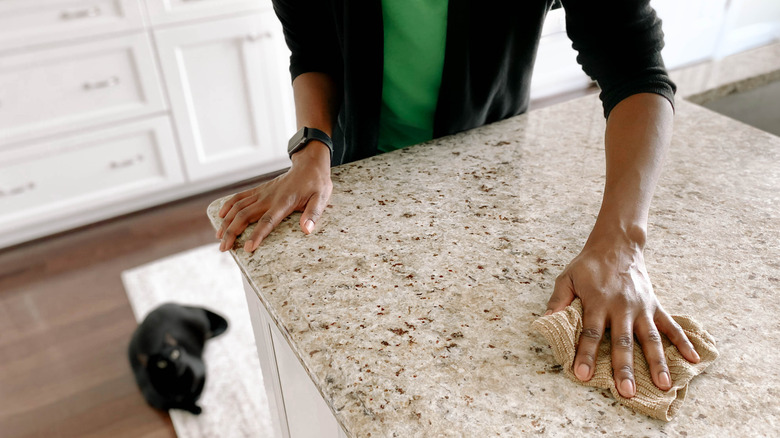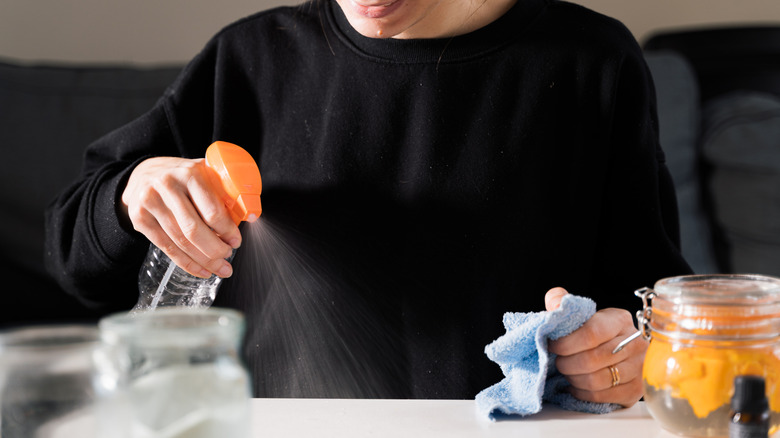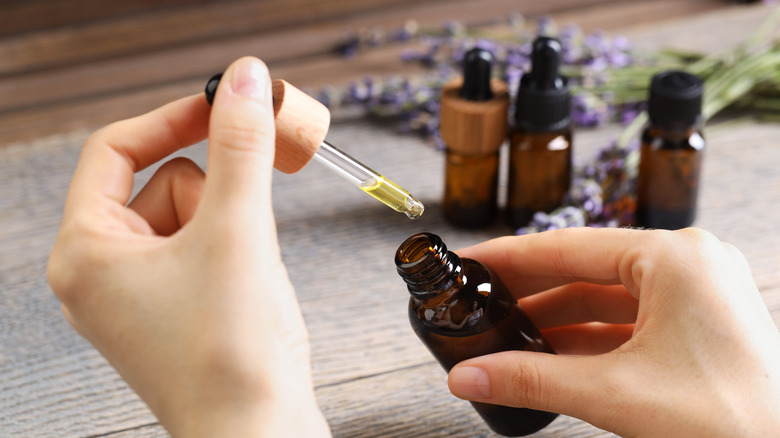Precautions To Take When Using Essential Oils On Your Granite Countertops
The unbeatable advantages of granite countertops are numerous. This natural stone is so unique that no two slabs are alike. With an average lifespan of 10 to 15 years and a potential lifespan of up to 100 years, this countertop material is heat- and moisture-resistant. Despite being as strong as an alien from the planet Krypton, the wrong cleaning ingredients on granite can quickly become its kryptonite. Anything with ammonia, bleach, hydrogen peroxide, citric acid, or vinegar can damage these countertops by stripping the protective sealant and dissolving the calcite in the stone. A gentle and natural approach some homeowners are considering to keep these popular countertops clean involves essential oils.
Can you put peppermint oil on granite? Yes, along with other enticing scents, like lavender, tea tree, and eucalyptus. According to a 2021 study in Frontiers in Public Health, essential oil-based disinfectants were effective at decreasing viruses and bacteria on the tested ceramic, stainless steel, and laminate surfaces. However, don't test your countertops without proper dilution, or you risk staining, discoloration, and etching in the stone.
Once you have the perfect diluted essential oil-based cleaning solution, you still need delicate cleaning tools, like sponges or microfiber cloths, to spread it around. If you haven't already done so, seal your granite countertops to prevent direct contact between the surface and essential oils. Creating a usable solution is simple and takes only a few ingredients.
Always properly dilute, test, and wipe
Combine your essential oil of choice with a basic homemade cleaning solution. One simple recipe uses 1½ cups of water, ¼ cup of rubbing alcohol, and a few drops of your essential oil of choice in a spray bottle. If you want your cleaning solution to be soapy, you can add about three drops of dish soap or plain liquid Castile soap.
Before going to town with your diluted DIY cleaner, play it safe with a small patch test. Pick a spot on the countertop that can look less-than-perfect if a reaction happens (perhaps a tight corner or area near the backsplash). In this tiny spot, remove debris and apply a small amount of your prepared solution. Let it sit for 24 hours to see if it does anything to your countertop, such as changing color.
If the patch-test results are successful, clean the remaining granite surface. Spray and leave your aromatic cleaner on the countertop for about 30 seconds before wiping in circular motions with a soft sponge or microfiber cloth. Remember, using a soft cleaning tool is as essential as diluting your essential oils, as an abrasive scrubber like steel wool or scouring pads can scratch the surface.
Know which essential oils may pose a danger to your countertop
The quality and properties of your essential oil can be affected by the plants they come from. Non-organic oils may come from plants grown with pesticides. Improper handling during storage and packing can cause exposure to light, heat, or oxygen, which may alter the chemistry. Some businesses have also made false claims or added vegetable oil or other substances to essential oils. Research to find oils without harmful components mixed in that can damage granite.
Citrus is acidic, so lemon and orange essential oils should be avoided on this surface. However, some citrus essential oil brands may be free of the damaging acidic component. Contacting the product support for the company that produces the oils you use can provide more info about their ingredients.
Using pine oil may leave residue buildup, and clove oil may break down the minerals in granite, creating etch marks. With a few precautions, you can use your granite countertop cleaning process to help your home smell good.


